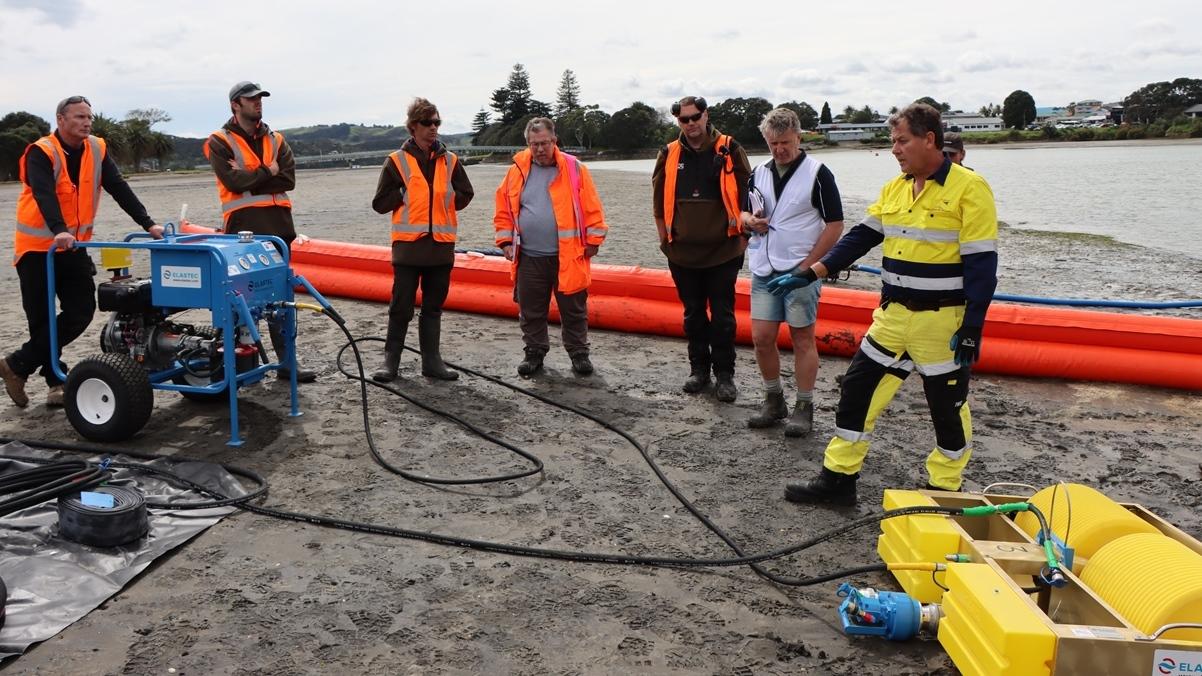Waikato Regional Council news
Emergency responders from Waikato Regional Council tested out some new equipment during a marine oil spill exercise in Raglan yesterday.
The new equipment, which is paid for by an oil pollution levy collected from industry to run Maritime New Zealand’s oil pollution preparedness and response system, included a floating drum oil skimmer that can remove up to 40 tonnes of oil an hour, and a holding tank capable of holding 5000 litres of oil.
The testing of the new equipment, and old, was part of a response to the mock sinking of a charter boat, the Faugh A Ballagh, which was leaking oil into the marine environment.
In the scenario, the Faugh A Ballagh has 800 litres of marine diesel oil on board and another 120 litres of heavier hydraulic and sump oils. The deck of the charter vessel is below the water line.
Senior Emergency Management Officer Derek Hartley, who took the role of regional on-scene commander (ROSC) for the emergency exercise, says regional councils are responsible for tier 2 oil spills which are within 12 nautical miles of the coastline and/or have the likelihood of associated costs of not more than $250,000 for the response and cleanup.
“In order to prepare for such situations, we conduct two exercises a year to ensure our resources and skills are up to required standards by Maritime New Zealand,” says Mr Hartley.
Staff from all areas of the council take part, including specialists in emergency management, maritime safety, health and safety, coastal and marine science and communications.
Two trucks of equipment rolled on to site at the Te Kopua boat ramp at 9am.
“Rapid deployment of booms to contain oil is key because it takes some time to unload and set up all the gear, and while that is going on we’re gathering as much intelligence as we can to guide our planning and next steps,” says Mr Hartley.
“Everything is taken into consideration. What’s the wind doing, what’s the tide doing, the weather? Are there any sites of significance, shellfish beds, what marine wildlife needs protecting? This is where local knowledge is invaluable, and we really welcome input.”
Then there is logistics.
“What’s this all going to cost? What’s going to happen to the vessel? Do we need to get divers in to plug the vents from where the oil is leaking? If we need to rescue any wildlife, where do they go? Is the shellfish safe to eat?
“We need to feed everyone, too, and make sure they get breaks. Do we need more staff? If the response looks to be ongoing for some days, then we need to sort accommodation or travel. And, in the meantime, the community are, quite rightly, watching closely and the media will always take a keen interest, and that is great because we should all be concerned when oil is spilled into our environment.”
